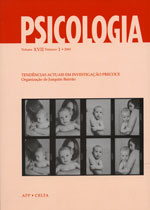The primary-service-provider model for home-and community-based services
DOI:
https://doi.org/10.17575/rpsicol.v17i1.441Keywords:
-Abstract
Home-based services are the most common method for providing early intervention in the US, yet no sound model has been articulated to date. This article proposes a model that has applicability across continents – wherever itinerant or consultative services are offered. It focuses on “integrated” services, which are based in the concept of support to the family and which use one primary servisse provider (i.e., a transdisciplinary model). The model is founded in the principles that (a) professionals can have more impact on adult family members than on children, (b) daily caregivers such as family members can have a more profound impact on children than can professionals, so (c) home-based services should be directed at supporting those caregivers.


